#marianne jeane-baptiste in secret and lies
Explore tagged Tumblr posts
Text
Well. At least we'll always have Lee Kang-sheng's eyes
#can we talk about actors for a second#olympia dukakis in moonstruck#Banlop Lomnoi in tropical malady#delphine seyrig in jeanne dielman marcello in a special day#marianne jeane-baptiste in secret and lies#bryan tyree henry in if beale street could talk#vertamae grosvernor in personal problems#antonio banderas in dolor y gloria#jada pinkett Smith in magic mike xxl#nathan lane in the birdcage#sometimes all you need is a performance that changes your life
2 notes
·
View notes
Text
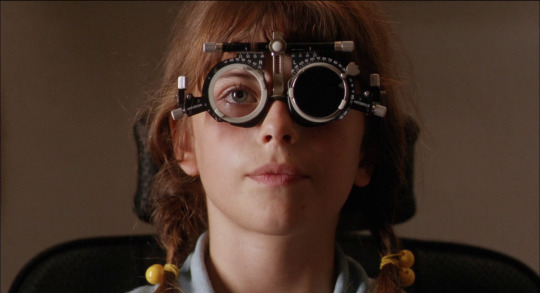

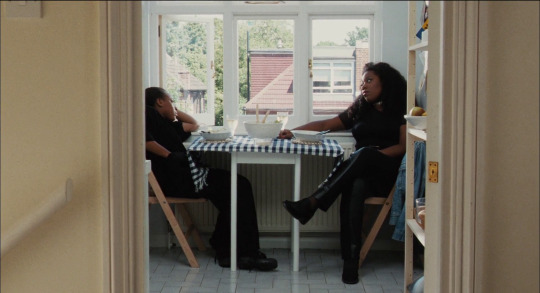
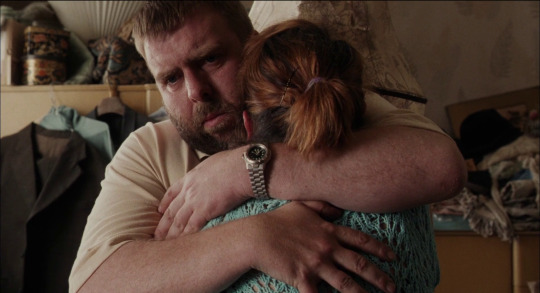
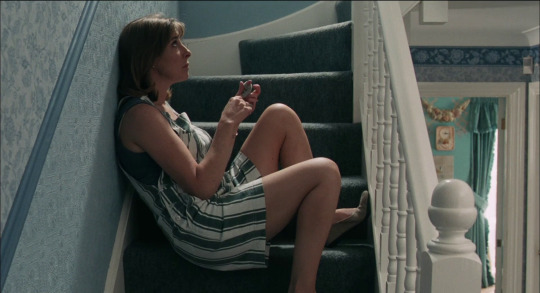


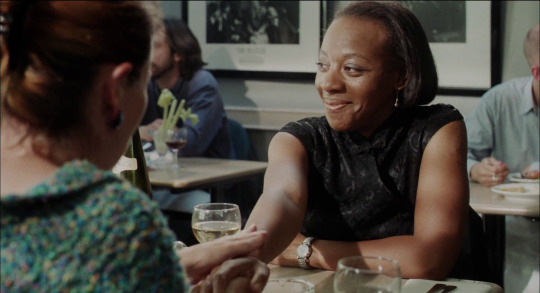
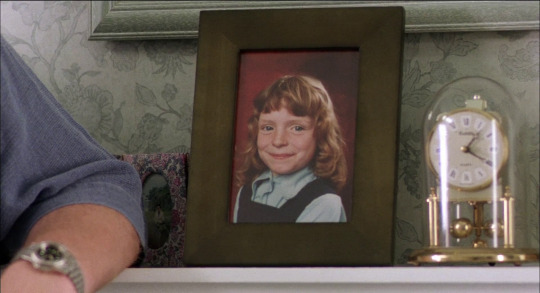
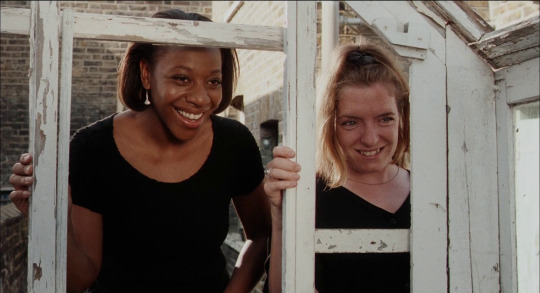
Secrets & Lies (1996) | dir. Mike Leigh
#secrets & lies#secrets and lies#mike leigh#timothy spall#brenda blethyn#marianne jean baptiste#claire rushbrook#lee ross#films#movies#cinematography#screencaps
166 notes
·
View notes
Text

#movies#polls#secrets & lies#secrets and lies#secrets & lies 1996#secrets & lies movie#90s movies#mike leigh#brenda blethyn#marianne jean baptiste#timothy spall#phyllis logan#claire rushbrook#have you seen this movie poll
47 notes
·
View notes
Text
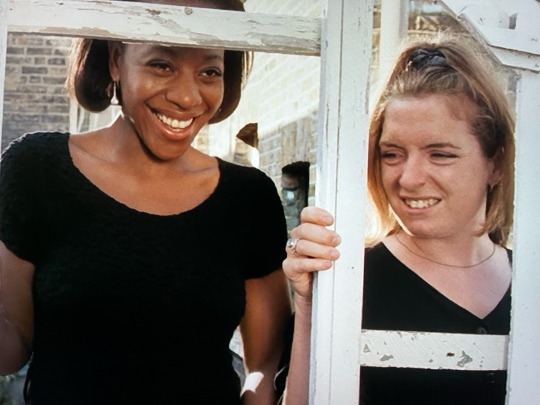
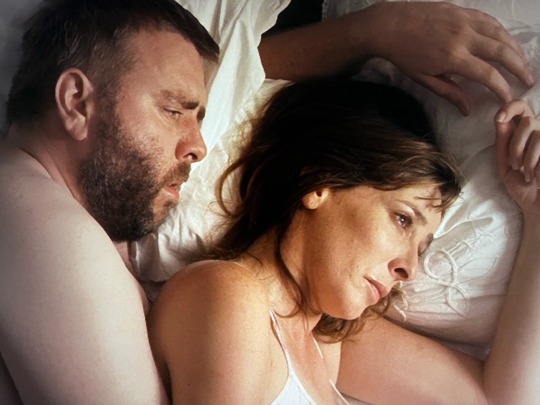
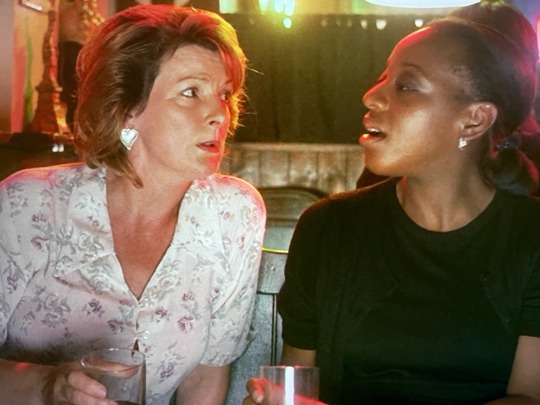
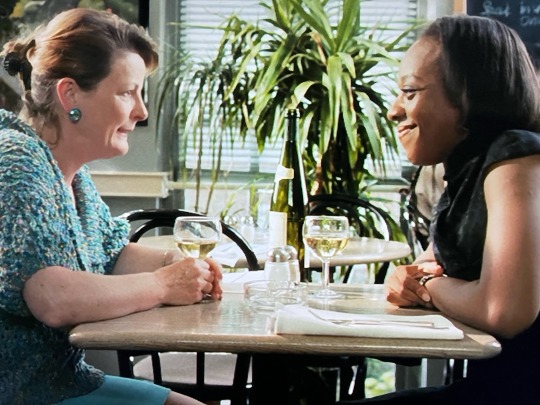
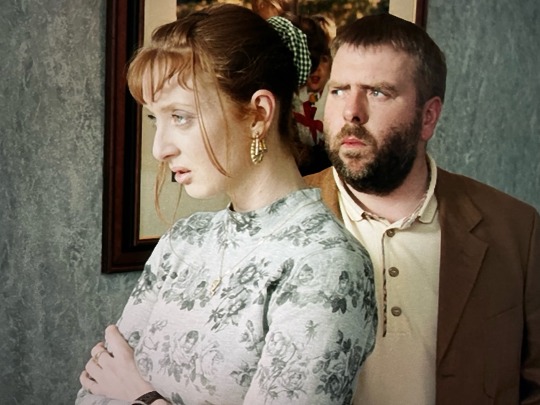
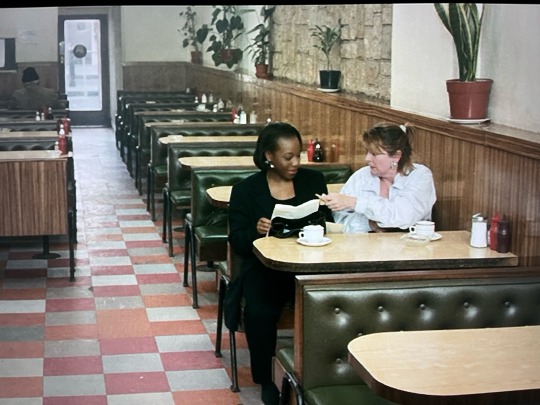
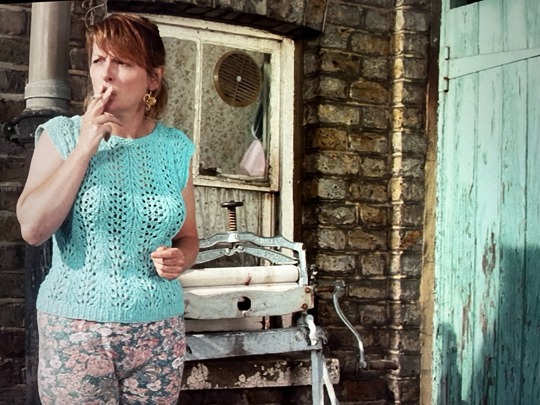
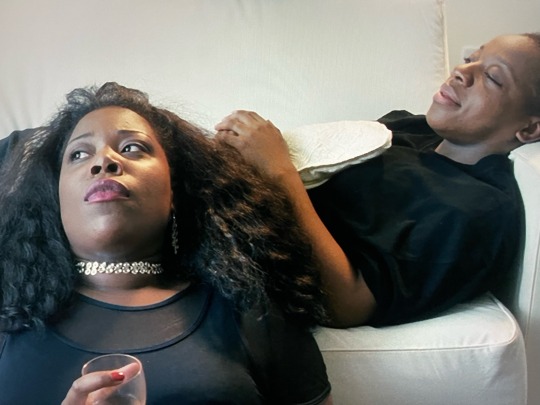
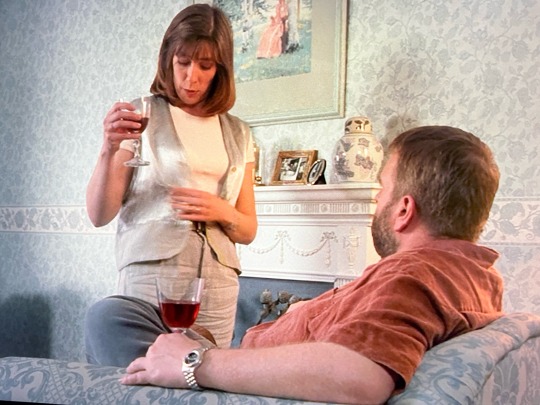

8 notes
·
View notes
Text
Hard Truths: Review
Auntie in agony

He might be 81 years of age and heading into his 17th film as director, but Mike Leigh’s storytelling has lost none of its spark. His latest film as writer-director is a deeply moving drama that explores a fractured family unit, while showing a real care for the story of its ordinary characters. The result is some of Leigh’s finest work in years, drawing out authentic performances, laughs and plenty of tears.
Reuniting with Marianne Jean-Baptiste for the first time since Secrets & Lies (filmed 29 years ago), this is another family drama concerned with the things we hide from our loved ones. But while that film explored this from the angle of the white working class, this is concerned with how grief and bottled emotions come to the surface in a black British family.
Set in London, we follow Pansy (Jean-Baptiste), a thoroughly unhappy woman who takes her anger out on anyone brave enough to get near her. If it’s not her helpless son Moses (Tuwaine Barrett) or emotionally distant husband Curtley (David Webber), it’s an unfortunate cashier at the supermarket. When her sister Chantelle (Michele Austin) suggests they get together for the anniversary of their mother’s death, it digs up some painful feelings that might explain Pansy’s rage.
While Leigh’s screenplay is aching with sadness, it’s also frequently hilarious. Whether it’s one of Pansy’s out-of-nowhere outbursts, or the funny conversations Chantelle hears while working at a salon, Leigh has a gift for just leaving the camera to roll and letting background characters shine in small scenes.
The script ably juggles tones between the heart-breaking and the comedic, and this is finely balanced by strong lead performances. Jean-Baptiste is an absolute force of nature. For much of the running time she wears a permanent scowl on her face, bursting into screaming matches against furniture store attendants and her own family. This is a character that easily could’ve become unlikeable, but in her hands, you see the deep sadness and paranoia beneath the blustery exterior. As her supportive sister, Austin is an immediate source of hope and humour, a woman who proves that being an independent single mother is more joyous than being in a marriage that makes you feel lonely.
The idea of sisterhood is at the heart of Hard Truths, but this is full of humanity and empathy for all its characters. It encourages you to see how even the most difficult and unsupportive people are going through something. By the time the end credits roll on this compassionate film, you’ll be desperate to phone your mum for a chat.
As funny as it is upsetting, Hard Truths is an emotionally charged drama that proves that Leigh is still a master at exploring turmoil in the family.
★★★★
0 notes
Text

Seen (again) in 2024:
Secrets & Lies (Mike Leigh), 1996
1 note
·
View note
Photo
The last scene is an acting masterclass.

- But sweetheart, I can’t be your mother !
- Why not ?
- Well…look at me!
Secrets and Lies (1996) with Marianne Jean-Baptiste (left) and Brenda Blethyn
19 notes
·
View notes
Text




marianne jean-baptiste in secrets & lies (1996)
dir. mike leigh
14 notes
·
View notes
Text
thanks for tagging me @waywardted 🥰
last song: 30 for 30 by sza feat. kendrick lamar
favorite color: butter yellow 🧈
last book: giovanni’s room by james baldwin
last movie: mike leigh’s secrets & lies. scene in the diner between marianne jean baptiste and brenda blethyn a scene of all time !!!
last show: hate to say it but og real housewives of new york lmfao. i have devoured 12 seasons of this and i’m sorry you simply cannot write a more unpredictable, entertaining, unhinged, evil, hilarious character than ramona singer
sweet/spicy/savory: all 3 please. and i just realized in this moment that this is why thai food is my favorite cuisine wow
releationship status: 🧍♀️
last thing i googled: i’m still here showtimes (doesn’t release here until next week, dying to see it)
current obsession: researching soup recipes, shopping for soup ingredients, making soup, eating soup
looking forward to: going to a new restaurant later this week that i have been eager to try! but mostly just being there with friends, catching up about our holidays, gossiping, etc
thank you! tagging @thesumdancekid @ohtendril @mrgaretcarter @andyridgeley @villainesses and every person who scrolls by this thx ⭐️
9 notes
·
View notes
Text
I watched Secrets & Lies 1996 based on a picture of two brilliant actresses Marianne Jean-Baptiste and Brenda Blethyn sat side by side - I've mostly seen them shine in secondary or restrained roles - and the recc for "selling a scene that would be overacting in any other hands" (paraphrased) so went in having no clue what it was about.
Good thing because if I'd seen it was a Mike Leigh it would have put me off. The one bit of film I've seen from him was trashy misogyny not worth seeing to the end.
This was good. It's slow at over 2h20 but a nice character driven mystery so don't spoil yourself if you want to watch it.
It felt sort of like a play at times. At others it felt like I was intruding. Other times it felt like a made for tv movie.
It definitely felt *different* and I saw myself in both women which doesn't happen often there's usually a layer of disbelief (lifestyle way above mine, focus on romance, views on life that just don't align with mine). These are two fundamentally kind and giving women who haven't made space for themselves, especially Cynthia who is suffocating and then they begin to change that.
Marianne Jean-Baptiste is luminous, she seems quieter and calmer than the rest but she's boiling with questions or bubbling with excitement with the tiniest hints in her face.
Brenda Blethyn's character was already 3 seconds away from a nervous breakdown when we meet her and mellows a little before breaking again. It makes you want to look away, makes you cringe, sure made me feel a way about times I've bottled everything up and then it all came out like a firehose. Funny how we're taught to cringe at the pressure cooker woman and the ugly cry.
Tl;dr : a different type of film where the actors were given a lot of space to improvise. You'll want the subtitles. Great acting and lovely ending.
2 notes
·
View notes
Text
I’m trying to come up with a list of movies about grief mostly for myself. I’m using grief as a general feeling of loss, maybe at the loss due to death or just grief of what no longer is. I can come up with really charming and beautiful takes on it. I think no home movie applies since it’s more of a movie of Chantal’s grief at the loss of her own mother. Ode to nothing works in the sense of the life you never got to have, gaining temporary hope and then losing that too.
Then there are movies like the annihilation of fish and huesera which are polar opposites. One is about elderly people who don’t fit into what’s considered normal, one constantly fights a demon and the other thinks they’re married to Puccini and when the two meet it’s the grief of the life people expect you to have, even the ones that aren’t really “normal”. And then huesera, a horror movie about a life crumbling apart. In this case, it’s a life you never really wanted, it’s conjured up from what you’re supposed to want. So you follow the steps and end up miserable anyways, it’s the destruction and grief that comes with the inability to love a child in this perfect life that could never be yours.
To a lesser extent, it makes me want to consider Post mortem too. Pablo Larraín’s doing a lot in that movie but there’s a sensibility that’s grief for Allende’s death and for what could have been with that government. Now it’s grief as when things went wrong, how this version of the world all of sudden is destroyed through guns and violence. And if we’re back at the moment things go wrong then we’re back to secrets and lies, aren’t we?
The moment of trauma that changes everything and that you’re so successful at repressing that when someone comes knocking at your door you can’t even tell what’s real or false. You’ve believed and lived a life for so long, thinking no good could come out of it and something beautiful happens. I still have my issues with the movie, particularly the ending but the relationship with Hortense who just lost her mother, and how she finds love in this unlikely friendship with her birth mother remains stellar work. Not just because the writing is impeccable but because Marianne Jean-Baptiste and Brenda Blethyn give flawless performances that are some of the best of all time (that part’s not up for debate).
It’s an obvious choice but I don’t enjoy or connect as much to stories that have grief as destruction or violence. I usually enjoy those but it’s the introspective nature of it that wrecks me and builds me from the ground up at the same time. If it was all just destruction then I don’t have a lot of hope for myself.
I need these movies. I need tropical malady.The line “every drop of blood sings our song” hits so deeply because it’s about giving away your memories to lovers past. It’s the transformation of death, loss, and becoming another (as the tiger) and letting yourself be consumed. By offering memory, love, happiness, and sadness, your whole self is offered to what used to be your lover, and by that, you turn death into something else, something beautiful. Finally, it all comes back to angels in america, turning loss and devastation into a claim for more life
4 notes
·
View notes
Text

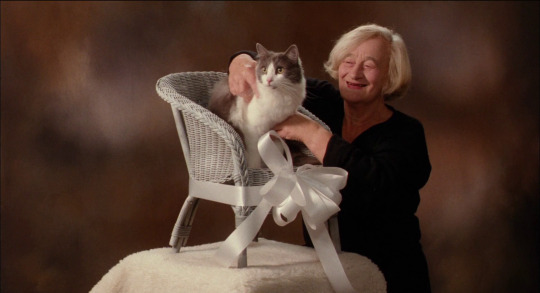

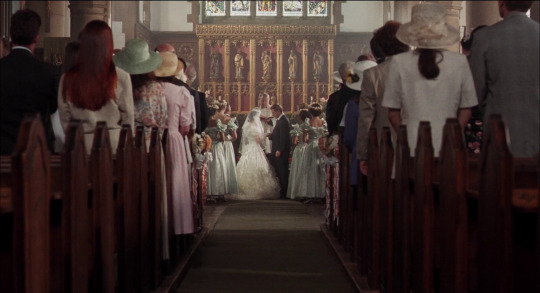
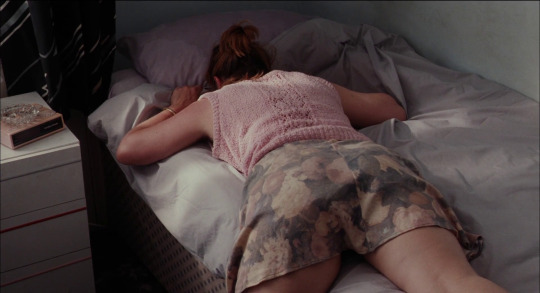
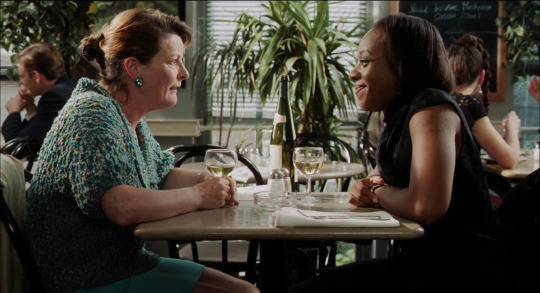

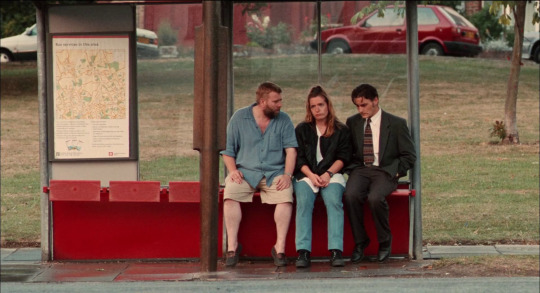
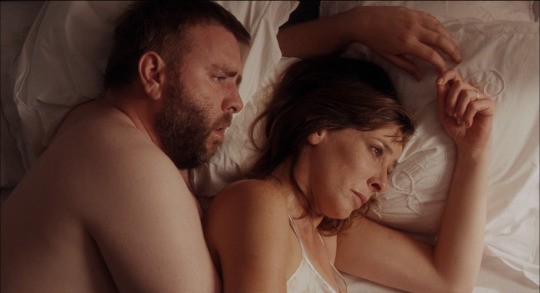

Secrets & Lies (1996) | dir. Mike Leigh
#secrets & lies#secrets and lies#mike leigh#timothy spall#brenda blethyn#marianne jean baptiste#claire rushbrook#lee ross#films#movies#cinematography#screencaps
127 notes
·
View notes
Photo

Minor spoilers ahead. Much has been said about British actor Marianne Jean-Baptiste’s performance as Pansy Deacon in Mike Leigh’s Hard Truths, and it’s easy to see why. From the opening scene, her performance carries an undeniable weight. Pansy is sharp-tongued, restless, and constantly on edge. Stuck in a tense, claustrophobic home where everyone’s walking on eggshells, she takes out her frustration on those around her, family and strangers. Her meek husband Curtley (played by David Webber), shrinks in the face of her temper while her unmotivated adult son, Moses (Tuwaine Barrett), bears the brunt of her relentless criticism. For much of Hard Truths, Pansy’s anger is impenetrable and doesn’t seem to stem from any one particular place. About two-thirds of the way into the film, her sister Chantelle (Michele Austin) asks what we’re all wondering: what are you so angry about? Why can’t you just enjoy life? It’s only then that the film, and Pansy, begin to search for answers. In a heart-to-heart on Mother’s Day by their mum’s grave, Pansy reveals her long-held belief that their mum always favored Chantelle, and left Pansy carrying the weight of responsibility especially after their dad left them. In the present day, she fears her whole family hates her. The sisters’ brief conversation is the most emotionally open we’ll see Pansy and yet it feels like we’re only scratching the surface. In the scenes that follow, her pained expressions, silences, and outbursts reveal that Pansy’s issues go beyond a bad temper. Whether she realizes it or not, she’s grappling with depression and anxiety. Pansy reminds me of so many British Afro-Caribbean women of her generation, whose depression often manifests in ways that aren’t readily recognized as sadness, meaning no one understands how they came to be this way. Pansy’s experiences in Hard Truths go beyond just her own struggles; they reflect the broader mental health challenges and unique socio-political issues faced by older Black women in modern-day Britain. Trying to make sense of Pansy’s anger is made profoundly more difficult and more heartbreaking because no one else — except us watching and her sister Chantelle — seems interested in doing the same. Even after Pansy completely breaks down, there’s little emotional response from her son and her husband, leaving us questioning whether there is any space for understanding, empathy, or support. Curtley and Moses are arguably dealing with mental health struggles of their own, but it’s no wonder Pansy feels so alone and so afraid of the outside world. In true Mike Leigh fashion, Pansy’s experiences in Hard Truths go beyond just her own struggles; they reflect the broader mental health challenges and unique socio-political issues faced by older Black women in modern-day Britain. After a six-year hiatus from filmmaking, Leigh returns with a lot to reflect on. The film lands at a time when Britain is still reeling from public sector cuts, COVID-19, and political upheaval. While Pansy’s story remains at the core, Hard Truths also invites us to consider how these issues have impacted our community, explored through the perspectives of other characters. Though Hard Truths is a quieter, more somber film with a modest budget compared to the big hitters dominating this awards season, there was still a sense that Marianne Jean-Baptiste might just sneak into the Academy Awards’ Best Actress race on the biggest night of the film awards season. After all, in 1997, Jean-Baptiste was the first Black British woman to be nominated for an Oscar for her role in Mike Leigh’s drama film Secrets & Lies and it was hoped that reuniting with the director on Hard Truths would spell an Oscar win close to 30 years later. Sadly, while Jean-Baptiste has picked up nominations at this year’s BAFTAs, the Oscars have proven to be a different ballgame. Unlike other events, the Academy Awards are voted for by peers, meaning acting performances have to resonate with fellow industry professionals and audiences. Historically, it’s been biopics and gritty performances where women overcome adversity that tend to get recognized. But this award circuit has been different. Veteran actresses like Angelina Jolie, Fernanda Torres, Demi Moore, and Nicole Kidman were all in the awards conversation, celebrated for roles that explore the lives of women over 50—stories that challenge ageism and highlight sexuality, careers, and experiences long sidelined in the film industry. If there was ever a year when Marianne Jean-Baptiste had a shot, it would have been this one. What’s disappointing about her being overlooked isn’t just the tough odds, but the fact that several male voters reportedly didn’t connect with or “like” Pansy’s character, leading them not to cast their votes. Unlikable, complex roles are often considered the meatiest roles and by extension, prime Oscar bait. But here, as with the other characters in Hard Truths, certain voters couldn’t move past Pansy’s unlikeability to recognize the humanity, nuance, and complexity beneath her suffering. I can’t help but feel that this echoes the experiences faced by older Black women and their mental health struggles. Society rarely takes time to consider what depression, anxiety, or other mental health issues might look like for them. And Jean-Baptiste’s exclusion from this year’s Best Actress Oscars lineup reflects the expectation for Black women to be likable, soft, and make others feel better, even in their suffering. Filmmaker Greta Gerwig put it best when speaking about Hard Truths during a recent interview. For Gerwig, the film isn’t just a woman saying, “Watch me perform my anger” but rather, “Watch me try to breathe while this animal is crushing me.” We like to think we recognize depression in all its forms and can empathize with its many permutations but, perhaps this film’s hardest truth is that there is still much work that needs to be done to recognize mental health issues in the often overlooked. That’s why on-screen portrayals like Pansy matter — they create space for the full complexity of women’s pain and mental health struggles in a way that’s still rare. Hard Truths is playing in movie theaters now This article was originally published to Unbothered UK Like what you see? How about some more R29 goodness, right here?Aaron Pierre & Kelvin Harrison Jr. In 'Mufasa' Source link
0 notes
Photo

Minor spoilers ahead. Much has been said about British actor Marianne Jean-Baptiste’s performance as Pansy Deacon in Mike Leigh’s Hard Truths, and it’s easy to see why. From the opening scene, her performance carries an undeniable weight. Pansy is sharp-tongued, restless, and constantly on edge. Stuck in a tense, claustrophobic home where everyone’s walking on eggshells, she takes out her frustration on those around her, family and strangers. Her meek husband Curtley (played by David Webber), shrinks in the face of her temper while her unmotivated adult son, Moses (Tuwaine Barrett), bears the brunt of her relentless criticism. For much of Hard Truths, Pansy’s anger is impenetrable and doesn’t seem to stem from any one particular place. About two-thirds of the way into the film, her sister Chantelle (Michele Austin) asks what we’re all wondering: what are you so angry about? Why can’t you just enjoy life? It’s only then that the film, and Pansy, begin to search for answers. In a heart-to-heart on Mother’s Day by their mum’s grave, Pansy reveals her long-held belief that their mum always favored Chantelle, and left Pansy carrying the weight of responsibility especially after their dad left them. In the present day, she fears her whole family hates her. The sisters’ brief conversation is the most emotionally open we’ll see Pansy and yet it feels like we’re only scratching the surface. In the scenes that follow, her pained expressions, silences, and outbursts reveal that Pansy’s issues go beyond a bad temper. Whether she realizes it or not, she’s grappling with depression and anxiety. Pansy reminds me of so many British Afro-Caribbean women of her generation, whose depression often manifests in ways that aren’t readily recognized as sadness, meaning no one understands how they came to be this way. Pansy’s experiences in Hard Truths go beyond just her own struggles; they reflect the broader mental health challenges and unique socio-political issues faced by older Black women in modern-day Britain. Trying to make sense of Pansy’s anger is made profoundly more difficult and more heartbreaking because no one else — except us watching and her sister Chantelle — seems interested in doing the same. Even after Pansy completely breaks down, there’s little emotional response from her son and her husband, leaving us questioning whether there is any space for understanding, empathy, or support. Curtley and Moses are arguably dealing with mental health struggles of their own, but it’s no wonder Pansy feels so alone and so afraid of the outside world. In true Mike Leigh fashion, Pansy’s experiences in Hard Truths go beyond just her own struggles; they reflect the broader mental health challenges and unique socio-political issues faced by older Black women in modern-day Britain. After a six-year hiatus from filmmaking, Leigh returns with a lot to reflect on. The film lands at a time when Britain is still reeling from public sector cuts, COVID-19, and political upheaval. While Pansy’s story remains at the core, Hard Truths also invites us to consider how these issues have impacted our community, explored through the perspectives of other characters. Though Hard Truths is a quieter, more somber film with a modest budget compared to the big hitters dominating this awards season, there was still a sense that Marianne Jean-Baptiste might just sneak into the Academy Awards’ Best Actress race on the biggest night of the film awards season. After all, in 1997, Jean-Baptiste was the first Black British woman to be nominated for an Oscar for her role in Mike Leigh’s drama film Secrets & Lies and it was hoped that reuniting with the director on Hard Truths would spell an Oscar win close to 30 years later. Sadly, while Jean-Baptiste has picked up nominations at this year’s BAFTAs, the Oscars have proven to be a different ballgame. Unlike other events, the Academy Awards are voted for by peers, meaning acting performances have to resonate with fellow industry professionals and audiences. Historically, it’s been biopics and gritty performances where women overcome adversity that tend to get recognized. But this award circuit has been different. Veteran actresses like Angelina Jolie, Fernanda Torres, Demi Moore, and Nicole Kidman were all in the awards conversation, celebrated for roles that explore the lives of women over 50—stories that challenge ageism and highlight sexuality, careers, and experiences long sidelined in the film industry. If there was ever a year when Marianne Jean-Baptiste had a shot, it would have been this one. What’s disappointing about her being overlooked isn’t just the tough odds, but the fact that several male voters reportedly didn’t connect with or “like” Pansy’s character, leading them not to cast their votes. Unlikable, complex roles are often considered the meatiest roles and by extension, prime Oscar bait. But here, as with the other characters in Hard Truths, certain voters couldn’t move past Pansy’s unlikeability to recognize the humanity, nuance, and complexity beneath her suffering. I can’t help but feel that this echoes the experiences faced by older Black women and their mental health struggles. Society rarely takes time to consider what depression, anxiety, or other mental health issues might look like for them. And Jean-Baptiste’s exclusion from this year’s Best Actress Oscars lineup reflects the expectation for Black women to be likable, soft, and make others feel better, even in their suffering. Filmmaker Greta Gerwig put it best when speaking about Hard Truths during a recent interview. For Gerwig, the film isn’t just a woman saying, “Watch me perform my anger” but rather, “Watch me try to breathe while this animal is crushing me.” We like to think we recognize depression in all its forms and can empathize with its many permutations but, perhaps this film’s hardest truth is that there is still much work that needs to be done to recognize mental health issues in the often overlooked. That’s why on-screen portrayals like Pansy matter — they create space for the full complexity of women’s pain and mental health struggles in a way that’s still rare. Hard Truths is playing in movie theaters now This article was originally published to Unbothered UK Like what you see? How about some more R29 goodness, right here?Aaron Pierre & Kelvin Harrison Jr. In 'Mufasa' Source link
0 notes
Photo

Minor spoilers ahead. Much has been said about British actor Marianne Jean-Baptiste’s performance as Pansy Deacon in Mike Leigh’s Hard Truths, and it’s easy to see why. From the opening scene, her performance carries an undeniable weight. Pansy is sharp-tongued, restless, and constantly on edge. Stuck in a tense, claustrophobic home where everyone’s walking on eggshells, she takes out her frustration on those around her, family and strangers. Her meek husband Curtley (played by David Webber), shrinks in the face of her temper while her unmotivated adult son, Moses (Tuwaine Barrett), bears the brunt of her relentless criticism. For much of Hard Truths, Pansy’s anger is impenetrable and doesn’t seem to stem from any one particular place. About two-thirds of the way into the film, her sister Chantelle (Michele Austin) asks what we’re all wondering: what are you so angry about? Why can’t you just enjoy life? It’s only then that the film, and Pansy, begin to search for answers. In a heart-to-heart on Mother’s Day by their mum’s grave, Pansy reveals her long-held belief that their mum always favored Chantelle, and left Pansy carrying the weight of responsibility especially after their dad left them. In the present day, she fears her whole family hates her. The sisters’ brief conversation is the most emotionally open we’ll see Pansy and yet it feels like we’re only scratching the surface. In the scenes that follow, her pained expressions, silences, and outbursts reveal that Pansy’s issues go beyond a bad temper. Whether she realizes it or not, she’s grappling with depression and anxiety. Pansy reminds me of so many British Afro-Caribbean women of her generation, whose depression often manifests in ways that aren’t readily recognized as sadness, meaning no one understands how they came to be this way. Pansy’s experiences in Hard Truths go beyond just her own struggles; they reflect the broader mental health challenges and unique socio-political issues faced by older Black women in modern-day Britain. Trying to make sense of Pansy’s anger is made profoundly more difficult and more heartbreaking because no one else — except us watching and her sister Chantelle — seems interested in doing the same. Even after Pansy completely breaks down, there’s little emotional response from her son and her husband, leaving us questioning whether there is any space for understanding, empathy, or support. Curtley and Moses are arguably dealing with mental health struggles of their own, but it’s no wonder Pansy feels so alone and so afraid of the outside world. In true Mike Leigh fashion, Pansy’s experiences in Hard Truths go beyond just her own struggles; they reflect the broader mental health challenges and unique socio-political issues faced by older Black women in modern-day Britain. After a six-year hiatus from filmmaking, Leigh returns with a lot to reflect on. The film lands at a time when Britain is still reeling from public sector cuts, COVID-19, and political upheaval. While Pansy’s story remains at the core, Hard Truths also invites us to consider how these issues have impacted our community, explored through the perspectives of other characters. Though Hard Truths is a quieter, more somber film with a modest budget compared to the big hitters dominating this awards season, there was still a sense that Marianne Jean-Baptiste might just sneak into the Academy Awards’ Best Actress race on the biggest night of the film awards season. After all, in 1997, Jean-Baptiste was the first Black British woman to be nominated for an Oscar for her role in Mike Leigh’s drama film Secrets & Lies and it was hoped that reuniting with the director on Hard Truths would spell an Oscar win close to 30 years later. Sadly, while Jean-Baptiste has picked up nominations at this year’s BAFTAs, the Oscars have proven to be a different ballgame. Unlike other events, the Academy Awards are voted for by peers, meaning acting performances have to resonate with fellow industry professionals and audiences. Historically, it’s been biopics and gritty performances where women overcome adversity that tend to get recognized. But this award circuit has been different. Veteran actresses like Angelina Jolie, Fernanda Torres, Demi Moore, and Nicole Kidman were all in the awards conversation, celebrated for roles that explore the lives of women over 50—stories that challenge ageism and highlight sexuality, careers, and experiences long sidelined in the film industry. If there was ever a year when Marianne Jean-Baptiste had a shot, it would have been this one. What’s disappointing about her being overlooked isn’t just the tough odds, but the fact that several male voters reportedly didn’t connect with or “like” Pansy’s character, leading them not to cast their votes. Unlikable, complex roles are often considered the meatiest roles and by extension, prime Oscar bait. But here, as with the other characters in Hard Truths, certain voters couldn’t move past Pansy’s unlikeability to recognize the humanity, nuance, and complexity beneath her suffering. I can’t help but feel that this echoes the experiences faced by older Black women and their mental health struggles. Society rarely takes time to consider what depression, anxiety, or other mental health issues might look like for them. And Jean-Baptiste’s exclusion from this year’s Best Actress Oscars lineup reflects the expectation for Black women to be likable, soft, and make others feel better, even in their suffering. Filmmaker Greta Gerwig put it best when speaking about Hard Truths during a recent interview. For Gerwig, the film isn’t just a woman saying, “Watch me perform my anger” but rather, “Watch me try to breathe while this animal is crushing me.” We like to think we recognize depression in all its forms and can empathize with its many permutations but, perhaps this film’s hardest truth is that there is still much work that needs to be done to recognize mental health issues in the often overlooked. That’s why on-screen portrayals like Pansy matter — they create space for the full complexity of women’s pain and mental health struggles in a way that’s still rare. Hard Truths is playing in movie theaters now This article was originally published to Unbothered UK Like what you see? How about some more R29 goodness, right here?Aaron Pierre & Kelvin Harrison Jr. In 'Mufasa' Source link
0 notes
Photo

Minor spoilers ahead. Much has been said about British actor Marianne Jean-Baptiste’s performance as Pansy Deacon in Mike Leigh’s Hard Truths, and it’s easy to see why. From the opening scene, her performance carries an undeniable weight. Pansy is sharp-tongued, restless, and constantly on edge. Stuck in a tense, claustrophobic home where everyone’s walking on eggshells, she takes out her frustration on those around her, family and strangers. Her meek husband Curtley (played by David Webber), shrinks in the face of her temper while her unmotivated adult son, Moses (Tuwaine Barrett), bears the brunt of her relentless criticism. For much of Hard Truths, Pansy’s anger is impenetrable and doesn’t seem to stem from any one particular place. About two-thirds of the way into the film, her sister Chantelle (Michele Austin) asks what we’re all wondering: what are you so angry about? Why can’t you just enjoy life? It’s only then that the film, and Pansy, begin to search for answers. In a heart-to-heart on Mother’s Day by their mum’s grave, Pansy reveals her long-held belief that their mum always favored Chantelle, and left Pansy carrying the weight of responsibility especially after their dad left them. In the present day, she fears her whole family hates her. The sisters’ brief conversation is the most emotionally open we’ll see Pansy and yet it feels like we’re only scratching the surface. In the scenes that follow, her pained expressions, silences, and outbursts reveal that Pansy’s issues go beyond a bad temper. Whether she realizes it or not, she’s grappling with depression and anxiety. Pansy reminds me of so many British Afro-Caribbean women of her generation, whose depression often manifests in ways that aren’t readily recognized as sadness, meaning no one understands how they came to be this way. Pansy’s experiences in Hard Truths go beyond just her own struggles; they reflect the broader mental health challenges and unique socio-political issues faced by older Black women in modern-day Britain. Trying to make sense of Pansy’s anger is made profoundly more difficult and more heartbreaking because no one else — except us watching and her sister Chantelle — seems interested in doing the same. Even after Pansy completely breaks down, there’s little emotional response from her son and her husband, leaving us questioning whether there is any space for understanding, empathy, or support. Curtley and Moses are arguably dealing with mental health struggles of their own, but it’s no wonder Pansy feels so alone and so afraid of the outside world. In true Mike Leigh fashion, Pansy’s experiences in Hard Truths go beyond just her own struggles; they reflect the broader mental health challenges and unique socio-political issues faced by older Black women in modern-day Britain. After a six-year hiatus from filmmaking, Leigh returns with a lot to reflect on. The film lands at a time when Britain is still reeling from public sector cuts, COVID-19, and political upheaval. While Pansy’s story remains at the core, Hard Truths also invites us to consider how these issues have impacted our community, explored through the perspectives of other characters. Though Hard Truths is a quieter, more somber film with a modest budget compared to the big hitters dominating this awards season, there was still a sense that Marianne Jean-Baptiste might just sneak into the Academy Awards’ Best Actress race on the biggest night of the film awards season. After all, in 1997, Jean-Baptiste was the first Black British woman to be nominated for an Oscar for her role in Mike Leigh’s drama film Secrets & Lies and it was hoped that reuniting with the director on Hard Truths would spell an Oscar win close to 30 years later. Sadly, while Jean-Baptiste has picked up nominations at this year’s BAFTAs, the Oscars have proven to be a different ballgame. Unlike other events, the Academy Awards are voted for by peers, meaning acting performances have to resonate with fellow industry professionals and audiences. Historically, it’s been biopics and gritty performances where women overcome adversity that tend to get recognized. But this award circuit has been different. Veteran actresses like Angelina Jolie, Fernanda Torres, Demi Moore, and Nicole Kidman were all in the awards conversation, celebrated for roles that explore the lives of women over 50—stories that challenge ageism and highlight sexuality, careers, and experiences long sidelined in the film industry. If there was ever a year when Marianne Jean-Baptiste had a shot, it would have been this one. What’s disappointing about her being overlooked isn’t just the tough odds, but the fact that several male voters reportedly didn’t connect with or “like” Pansy’s character, leading them not to cast their votes. Unlikable, complex roles are often considered the meatiest roles and by extension, prime Oscar bait. But here, as with the other characters in Hard Truths, certain voters couldn’t move past Pansy’s unlikeability to recognize the humanity, nuance, and complexity beneath her suffering. I can’t help but feel that this echoes the experiences faced by older Black women and their mental health struggles. Society rarely takes time to consider what depression, anxiety, or other mental health issues might look like for them. And Jean-Baptiste’s exclusion from this year’s Best Actress Oscars lineup reflects the expectation for Black women to be likable, soft, and make others feel better, even in their suffering. Filmmaker Greta Gerwig put it best when speaking about Hard Truths during a recent interview. For Gerwig, the film isn’t just a woman saying, “Watch me perform my anger” but rather, “Watch me try to breathe while this animal is crushing me.” We like to think we recognize depression in all its forms and can empathize with its many permutations but, perhaps this film’s hardest truth is that there is still much work that needs to be done to recognize mental health issues in the often overlooked. That’s why on-screen portrayals like Pansy matter — they create space for the full complexity of women’s pain and mental health struggles in a way that’s still rare. Hard Truths is playing in movie theaters now This article was originally published to Unbothered UK Like what you see? How about some more R29 goodness, right here?Aaron Pierre & Kelvin Harrison Jr. In 'Mufasa' Source link
0 notes